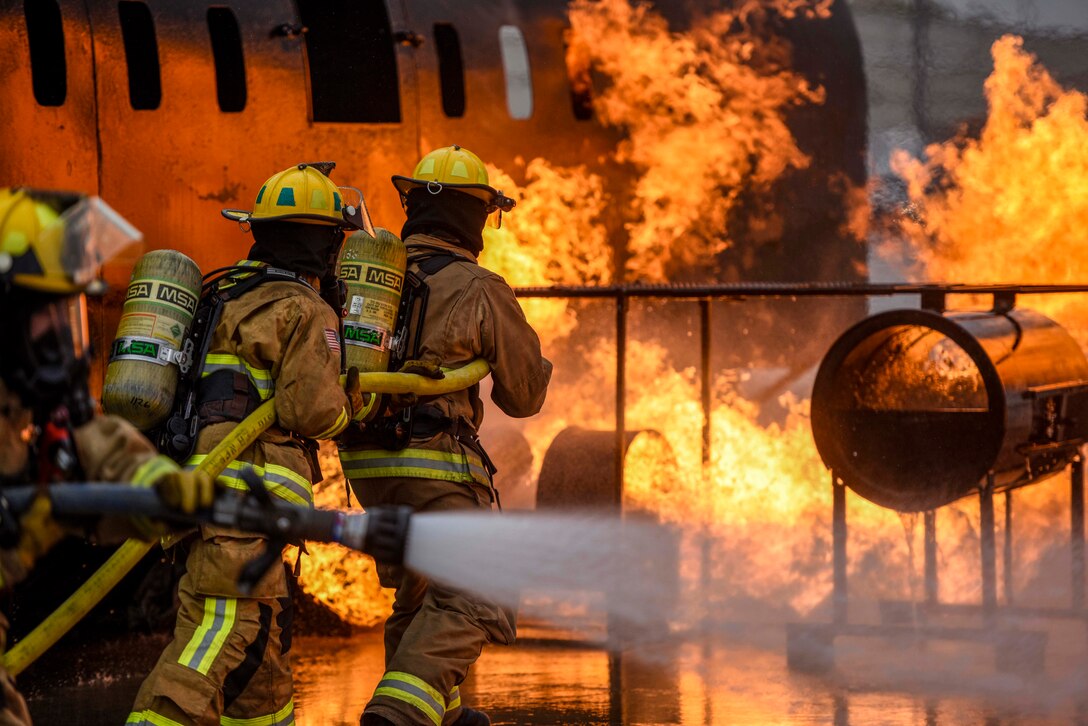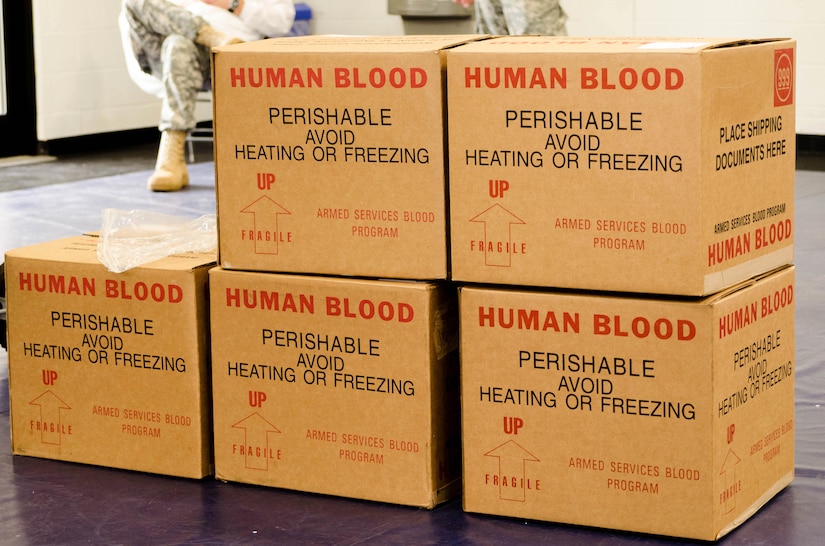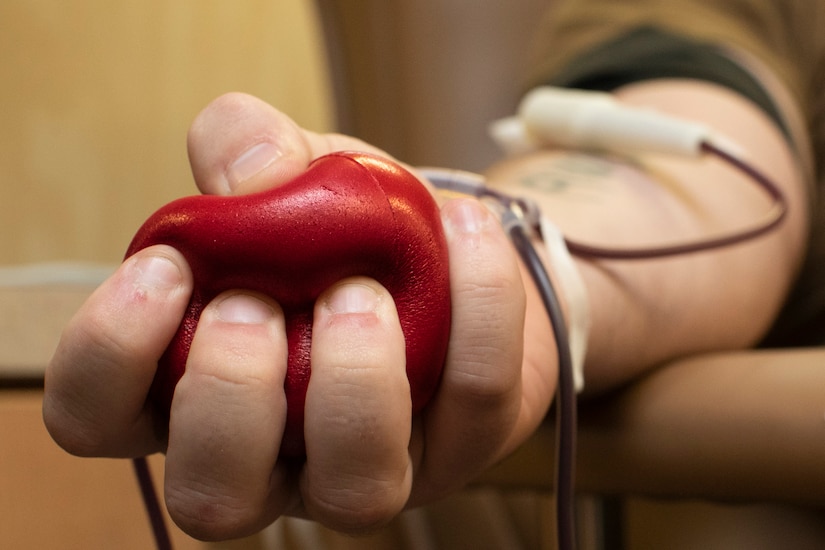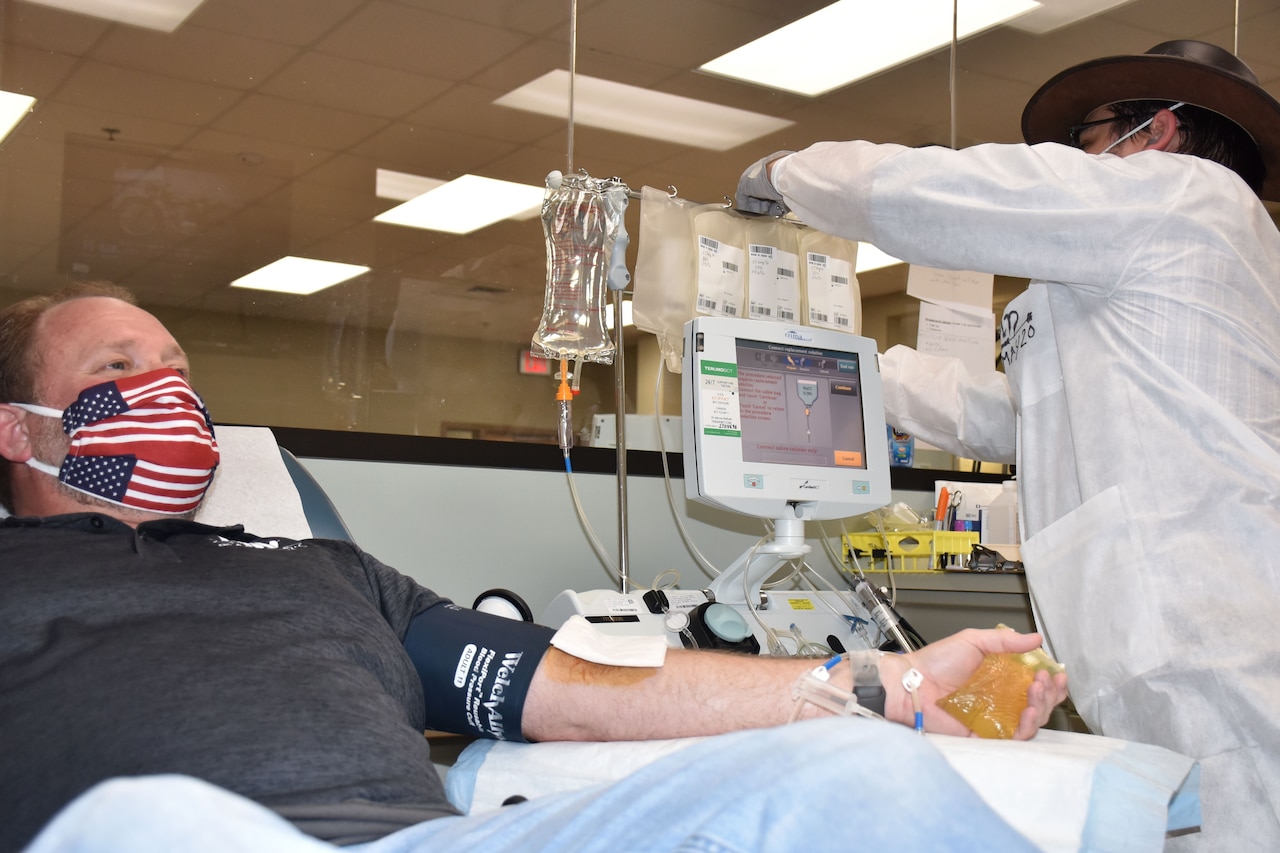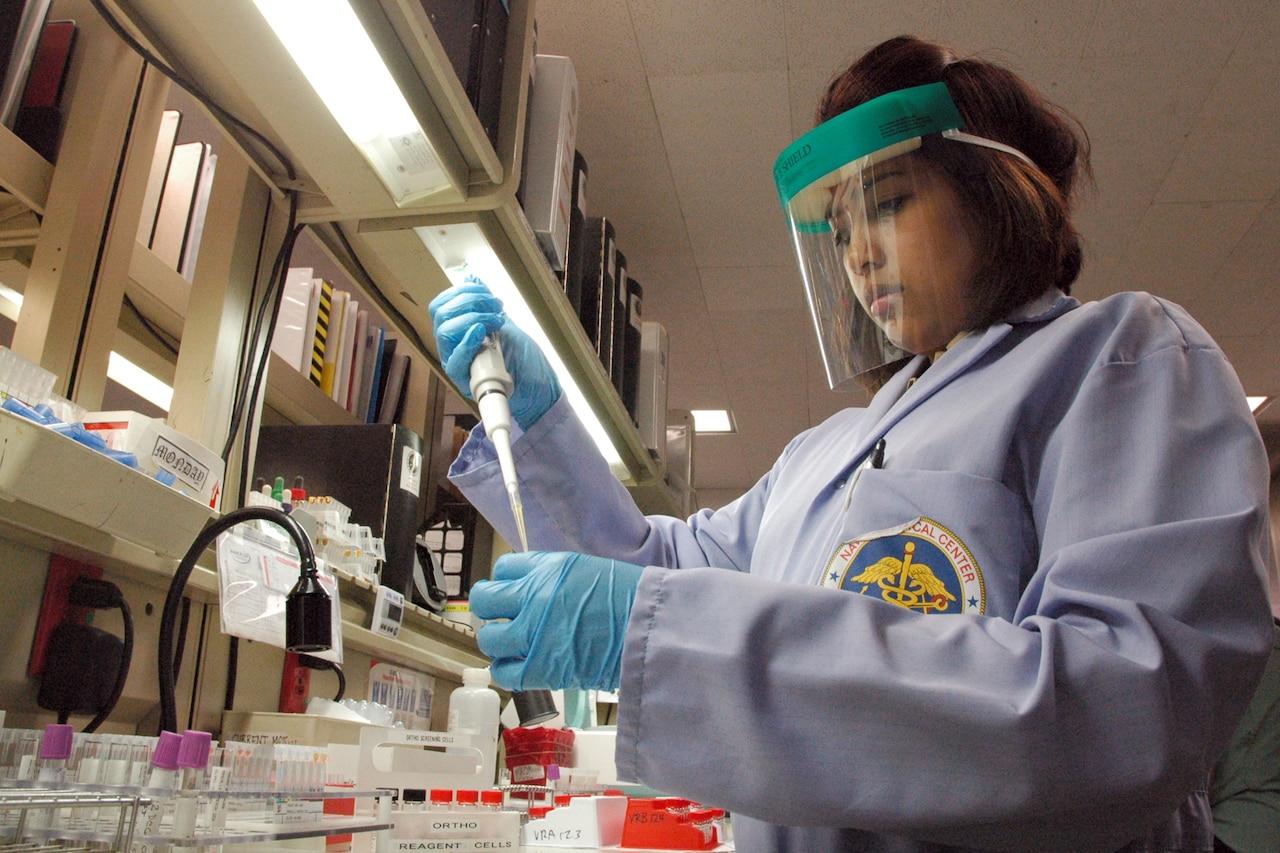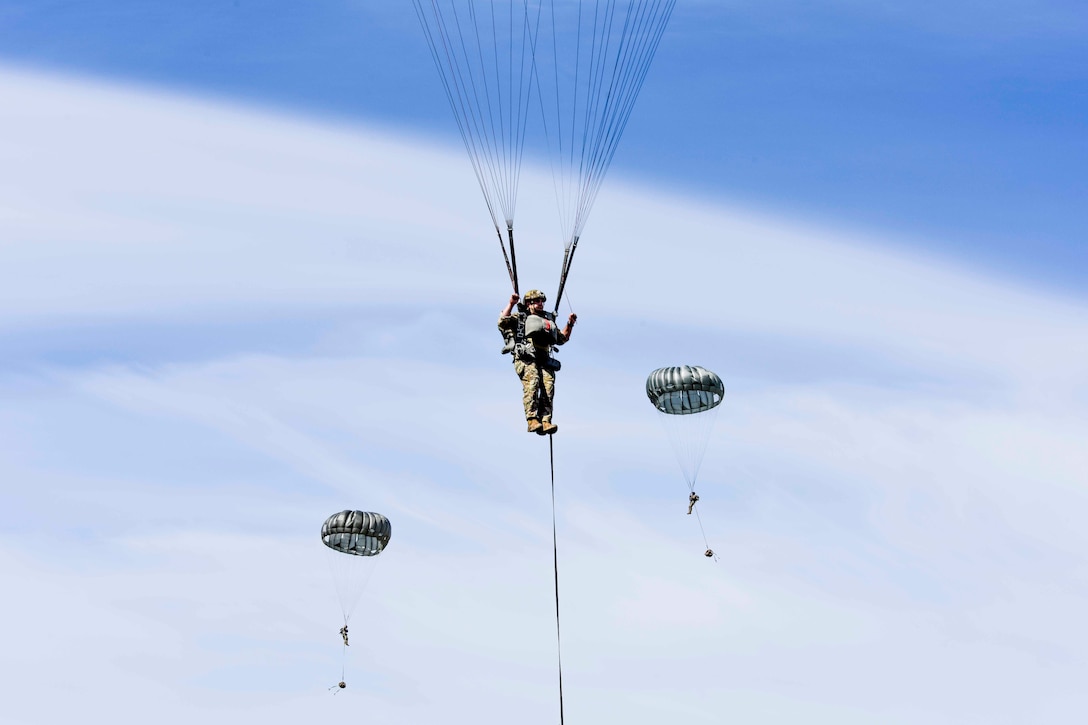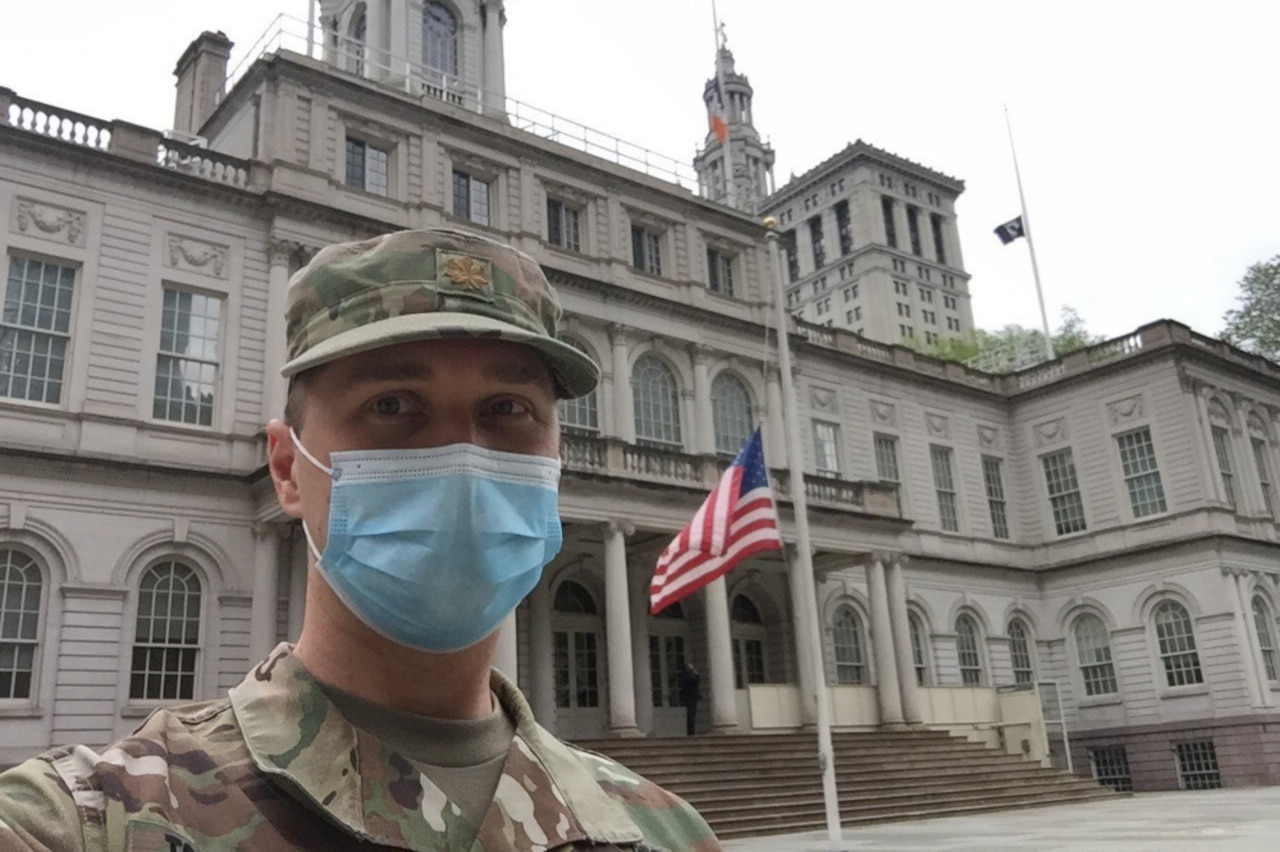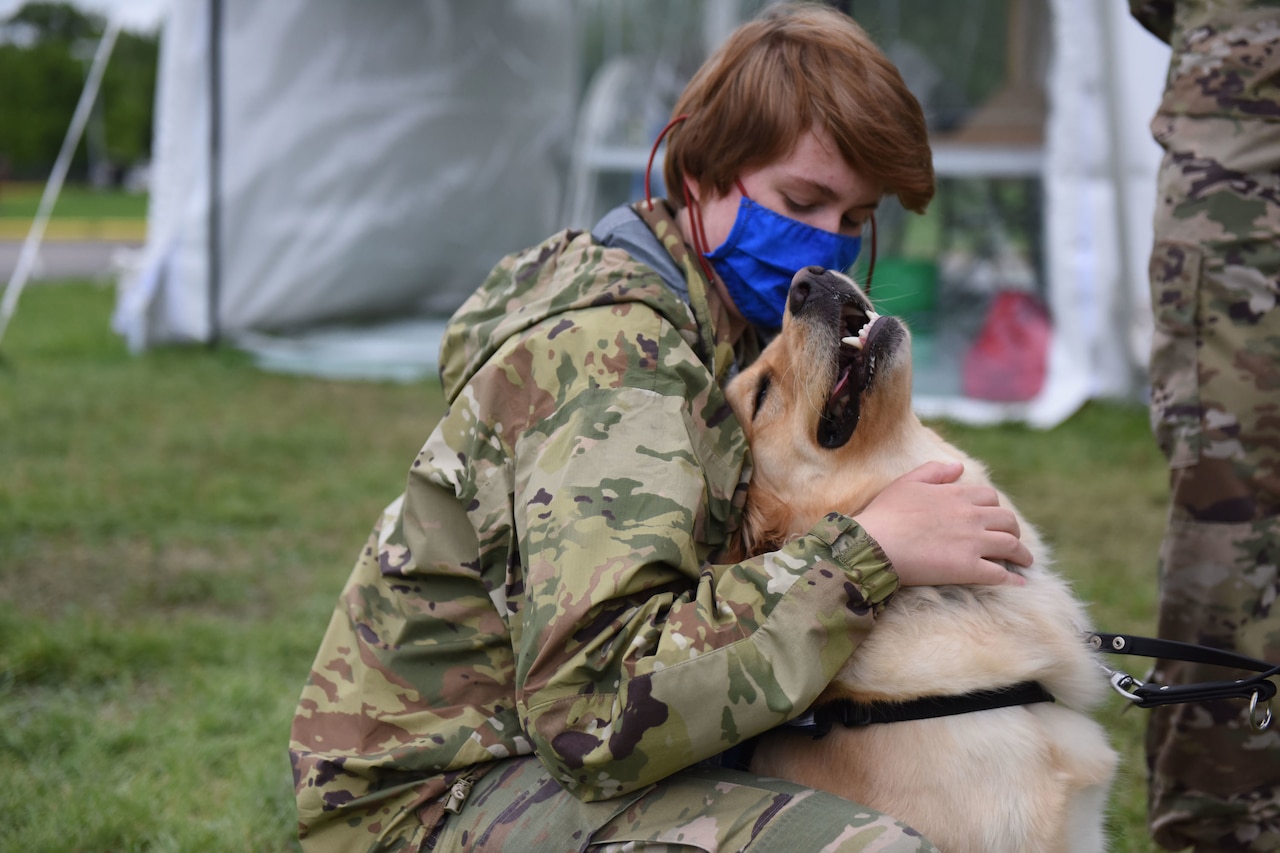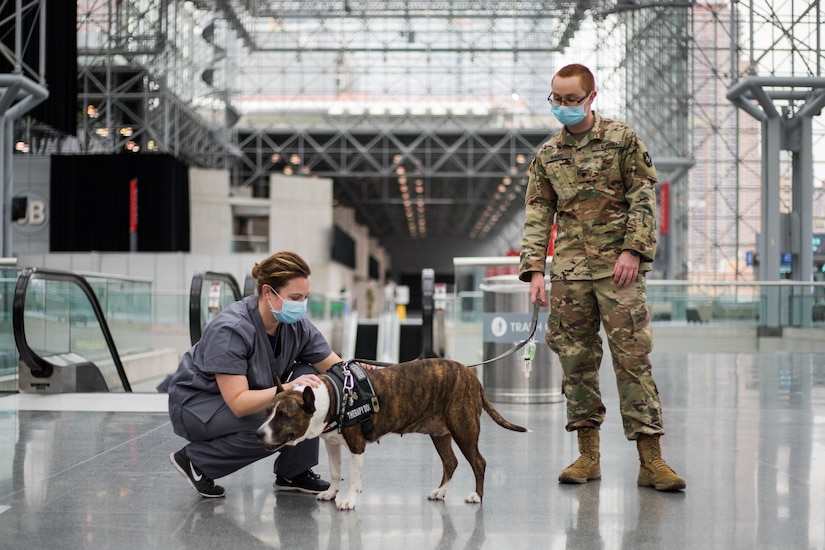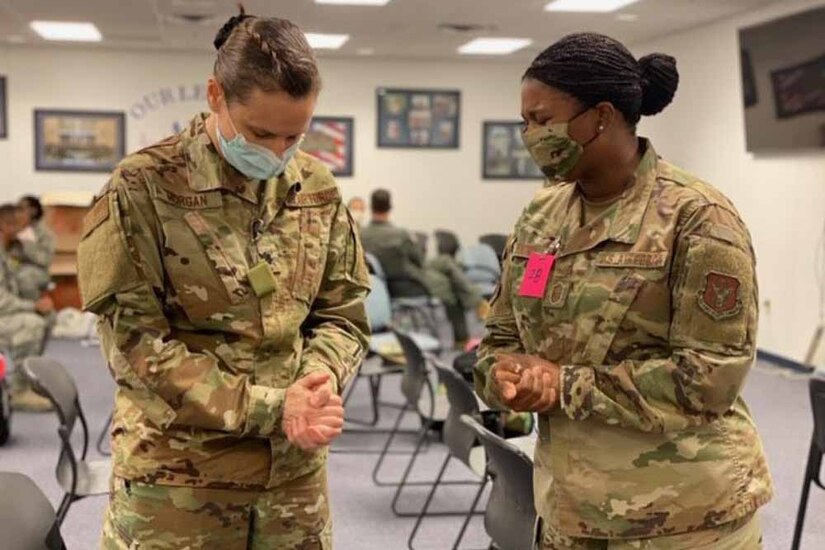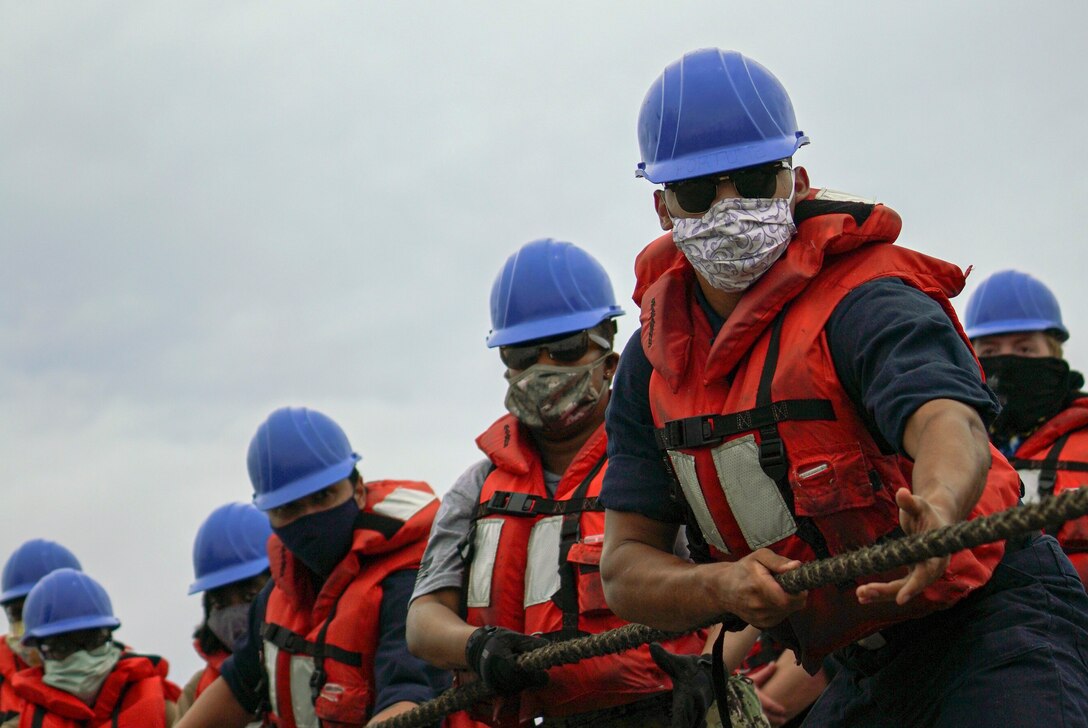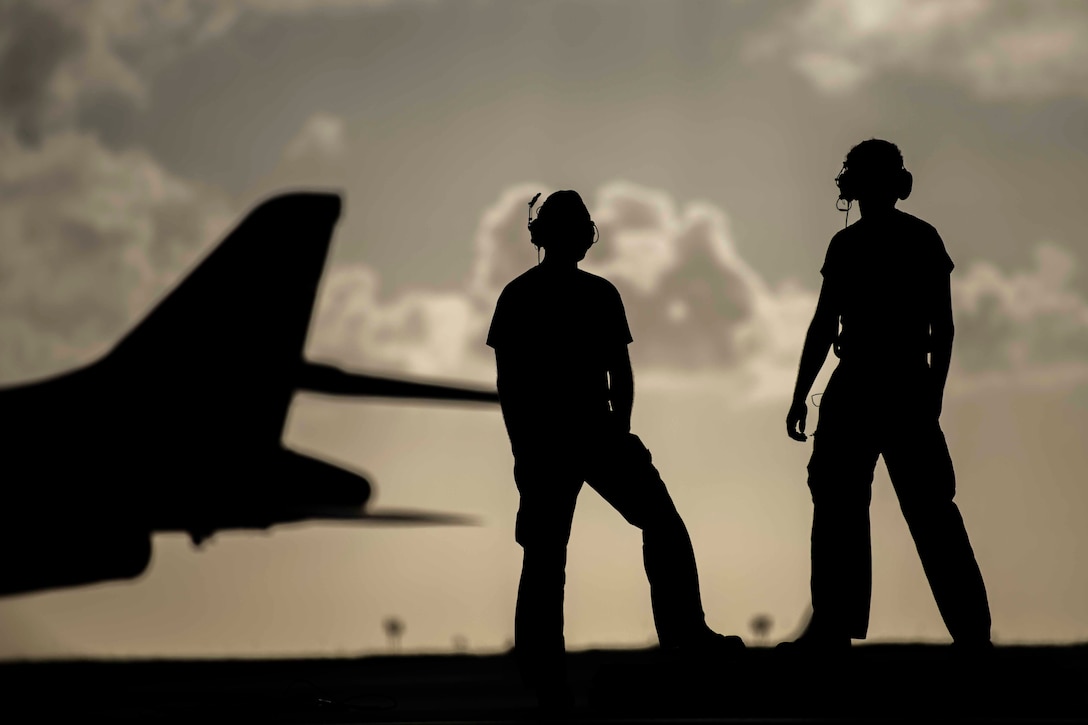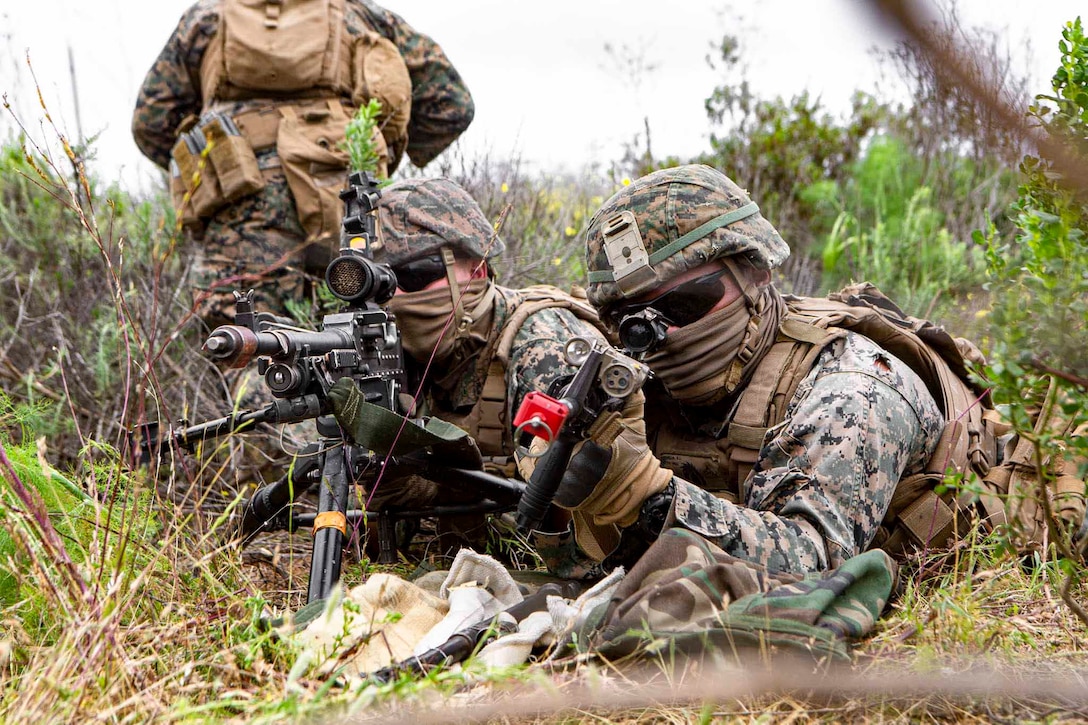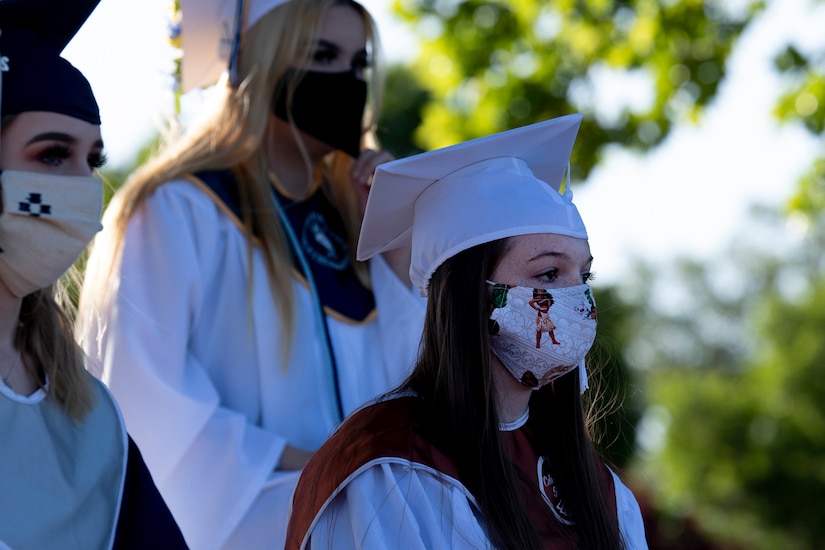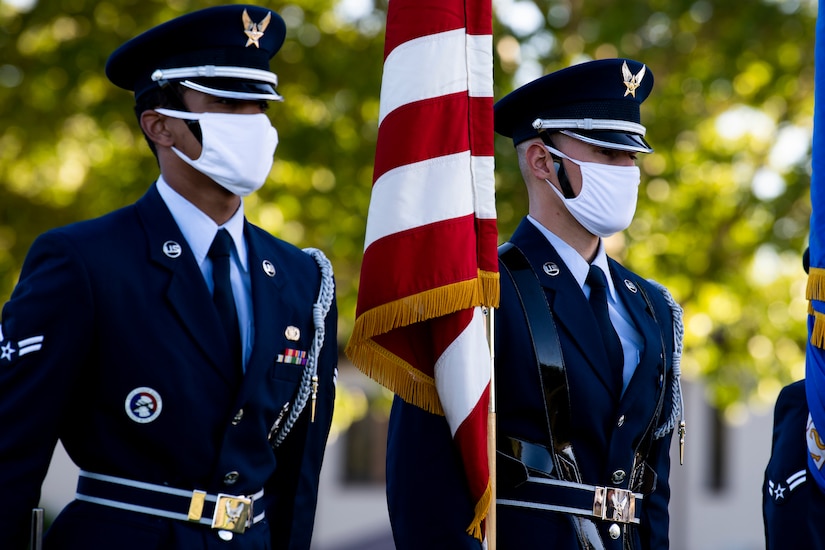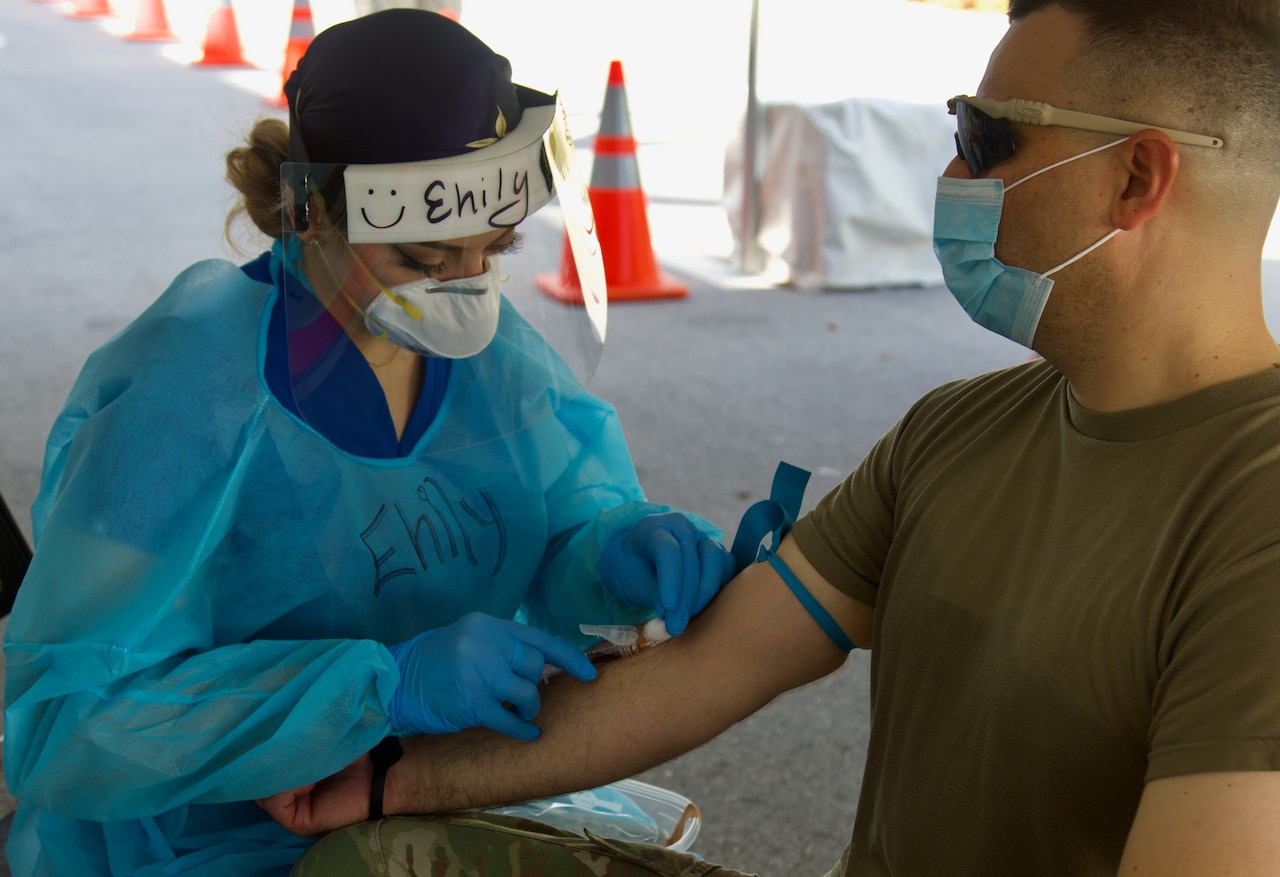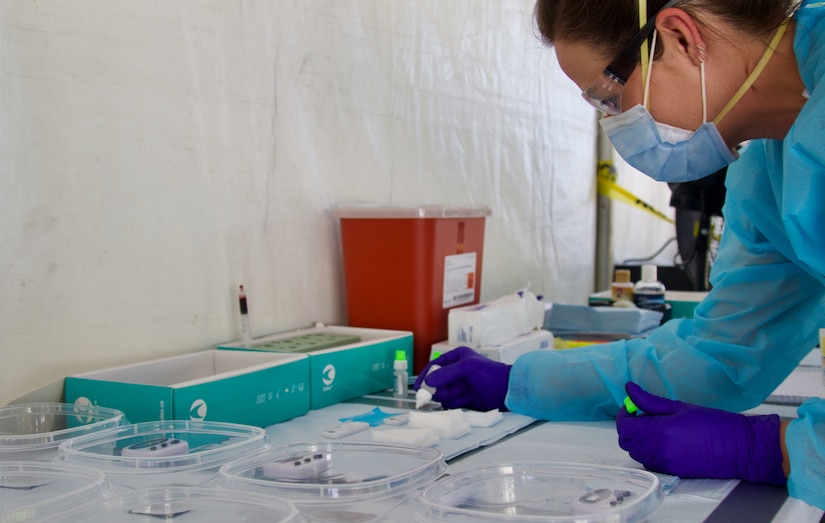May 28, 2020
|
BY Terri Moon Cronk, DOD News
As the number of COVID-19 deaths in the U.S. exceeds
100,000 and people continue to take precautions, military medical
experts expect the need for mental health care to increase because of
stress, anxiety and other psychological symptoms.
During the COVID-19 emergency and the existing phase in which some
communities are starting to emerge from restrictions, the psychological
impact can affect health care workers, service members, veterans,
civilians and their families. Four medical specialists of the Military
Health System agreed yesterday in a media telephone roundtable.
[S]ometimes a little bit of help is all we need to improve our
mental health and [be] mission ready; taking small steps to address
problems early on makes a big difference, especially during the
pandemic."
Dr. Holly O'Reilly, clinical psychologist, Defense Health Agency
The panelists were Dr. Nicholas Polizzi, action officer for the
inTransition Program and the Real Warriors Campaign, Psychological
Health Center of Excellence; Dr. Holly O'Reilly, clinical psychologist
with the Defense Health Agency; Army Col. (Dr.) David Benedek, chief of
psychiatry at the Uniformed Services University of the Health Sciences;
and Dr. Stephen Cozza, associate director of the Center for the Study of
Traumatic Stress at the USUHS.
May is Mental Health Month, but the Defense Department focuses on the
health of its people year-round, O'Reilly said, adding that this
month's theme is "Need a Little Help."
"[S]ometimes a little bit of help is all we need to improve our
mental health and [be] mission ready; taking small steps to address
problems early on makes a big difference, especially during the
pandemic," she explained.
"During the COVID-19 pandemic, people can experience stress, anxiety,
fear, sadness and loneliness. It's changed how we live and … how we
interact," O'Reilly said.
DOD has many resources for mental health help, she said, adding that
service members and veterans are encouraged to ask for help and
recognize that seeking help is a sign of strength.
While many facets of society are affected in different ways by the
pandemic, in the health care realm, it's not just doctors and nurses who
are overwhelmed, Benedek said.
Other front-line workers — such as hospital administrators,
janitorial workers and other hospital employees — have been exposed to a
lot more sickness, severe illness, surges and greater numbers of
deaths, he said.
While most people will be resilient and recover from exposures and
experiences, stress and anxiety can be side effects of working in a
COVID-19 environment, Benedek noted.
The effects on health care workers can also affect their family
members when they are faced with long and extended absences from their
loved ones, while they work under varying circumstances and put
themselves at risk by having close exposure to the virus, Cozza said.
It's hard to have a crystal ball, but we believe that because
the concerns are higher across society, the demand will be higher, and
we're prepared and ready to address those demands as they declare
themselves."
Army Col. (Dr.) David Benedek, chief of psychiatry, Uniformed Services University of the Health Sciences
The invisible nature of the war on COVID-19 can also escalate from
stress and anxiety to post-traumatic stress disorder, Benedek said.
"In terms of the challenges confronting health care workers, I think
it's important to know that, to some degree, we are in uncharted
territory, so it's hard to know how many will develop post-traumatic
stress disorder or depression," he said.
If someone has thoughts of suicide, that's a big red flag, and
certainly should be taken seriously, Benedek said. The National Suicide
Prevention Lifeline and Military OneSource offer the phone line
1-800-273-8255 for crisis intervention.
"Concerns about decreases in levels of function, the inability to
concentrate, or the inability to interact as normal with other people
should prompt concerns about seeking additional help," he emphasized.
"In terms of resources, I think it's important to emphasize that DOD
has both Real Warriors Campaign and inTransition that [are] able to work
with National Guard and reserve leaders … to help support not just
individual people… but to help create a whole culture at the
installation that supports psychological health … and to normalize
psychological health care as just health care," Polizzi said.
According to their websites the Real Warriors Campaign encourages
help-seeking behavior among service members, veterans and military
families coping with invisible wounds. The second mental health care
resource, inTransition, is a free, confidential program that offers
specialized coaching and assistance for active-duty service members,
National Guard members, reservists, veterans and retirees who need
access to mental health care during relocation, returning from
deployment and other life changes.
Mental health experts anticipate a rise in demand for seeking care,
Benedek said, and they are taking steps to be ready for that surge
whether it's in a hospital environment or a behavioral health or
telehealth capacity.
"[We] think we're a little bit in unchartered waters," Benedek said.
"It's hard to have a crystal ball, but we believe that because the
concerns are higher across society, the demand will be higher, and we're
prepared and ready to address those demands as they declare
themselves."


